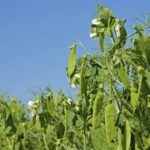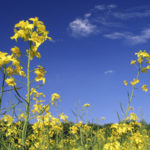Reading Time: 4 minutes Is that No. 2 CWRS just as good for milling and baking as a No. 1? Or does that No. 1 CWRS have some quality damage that can’t be seen with the naked eye, making it no better than a No. 2? The answer could be yes in both cases, sometimes, in cases that might […] Read more

Better than meets the eye?
Canada’s quality-control system still has a lot of support, but some are calling for grades to be determined by machines, not the human eye

Canola exports slow down in latest weekly report
Reading Time: < 1 minute CNS Canada — Weekly Canadian canola exports were down during the week ended Sunday, hitting their lowest level since September 2017, according to the latest Canadian Grain Commission data. Canada exported only 129,000 tonnes of canola during the latest reporting period, which compares with the previous five-week average of 194,800 tonnes. Total canola exports during […] Read more

Making sure you get paid
Recent changes to the marketing system have prompted the entrance of new players, so it’s worth a refresher on who guarantees payment for grain, and for how long
Reading Time: 4 minutes Grain producers protect the investment they’ve planted, fertilized, watched grow, harvested and taken the pains to safely store, but it’s the Canada Grain Act that’s supposed to ensure financial protection from buyers that go bust or act unscrupulously. Farmers have never had to worry about payment from the large elevator companies which have historically dominated […] Read more

Pea processor wants more protein
Mean protein in western Canadian peas peaked at 24.7 per cent in 2007, but declined to 22.1 per cent last year
Reading Time: 3 minutes Pea researchers have a new focus on protein as plans for the world’s largest protein-based pea-processing plant move ahead in Portage la Prairie, Man. Last January, Roquette, a French specialty food and pharmaceutical supplier, announced construction of the $400-million plant, expected to employ 150 people and process up to 125,000 tonnes of peas each year. […] Read more

Growing quality oats
Recommendations for oat agronomy from the new POGA Oat Growers Manual and research across Western Canada
Reading Time: 6 minutes Soil and rotation Oats grow best in black and grey wooded soil zones that have higher moisture, but can grow on sandy loam to heavy clay soils as long as they have good drainage. To reduce disease pressure and optimize yields, oats should not be grown after cereals. The best rotational crops include canola, hay, […] Read more

Producers lose transparency with end of weekly crush report
Reading Time: 2 minutes CNS Canada — Canada’s grains industry found itself shocked when the Canadian Oilseed Processors Association (COPA) announced Friday it would stop publishing its weekly report on member crushings. “I loved that report. In Western Canada, or Canada in general, I think any reports that give you kind of a weekly snapshot of what’s happening in […] Read more

Speculative buying sees canola prices firm up
Reading Time: 2 minutes Winnipeg | CNS Canada – ICE Canada canola prices bounced around within a wide range during the week ended November 17, but finished on a firmer note as a rally in Chicago Board of Trade soybeans gave canola a boost. Any strength was largely tied to chart-based speculative buying, with no real fresh fundamental news […] Read more

Record weekly canola exports reported
Reading Time: < 1 minute Winnipeg | CNS Canada – Canada exported the most canola in a single week ever during the week ended November 5, according to the latest Canadian Grain Commission report. The CGC pegged weekly canola exports at 470,200 tonnes of canola during the reporting period. That compares with average weekly exports over the past year of […] Read more

Open market, but not-so-open information
Five years post-CWB, farmers are still waiting for information that puts them on a more even position with the companies buying their grain
Reading Time: 5 minutes The characters in the play “Waiting for Godot” and Prairie grain market transparency apparently have something in common — waiting for something that never arrives. It’s been five years since the end of the Canadian Wheat Board monopoly, when one of the goals was to expose Prairie wheat and barley growers to the mechanisms of […] Read more

Visible Canadian canola stocks tightest in four years
Reading Time: < 1 minute CNS Canada — Canola supplies in commercial hands in Canada dropped to their tightest level in four years, according to the latest data from the Canadian Grain Commission for the week ended Sunday. Visible canola supplies, at 511,500 tonnes, are down from the already tight level of 556,700 posted the previous week, and represent the […] Read more


